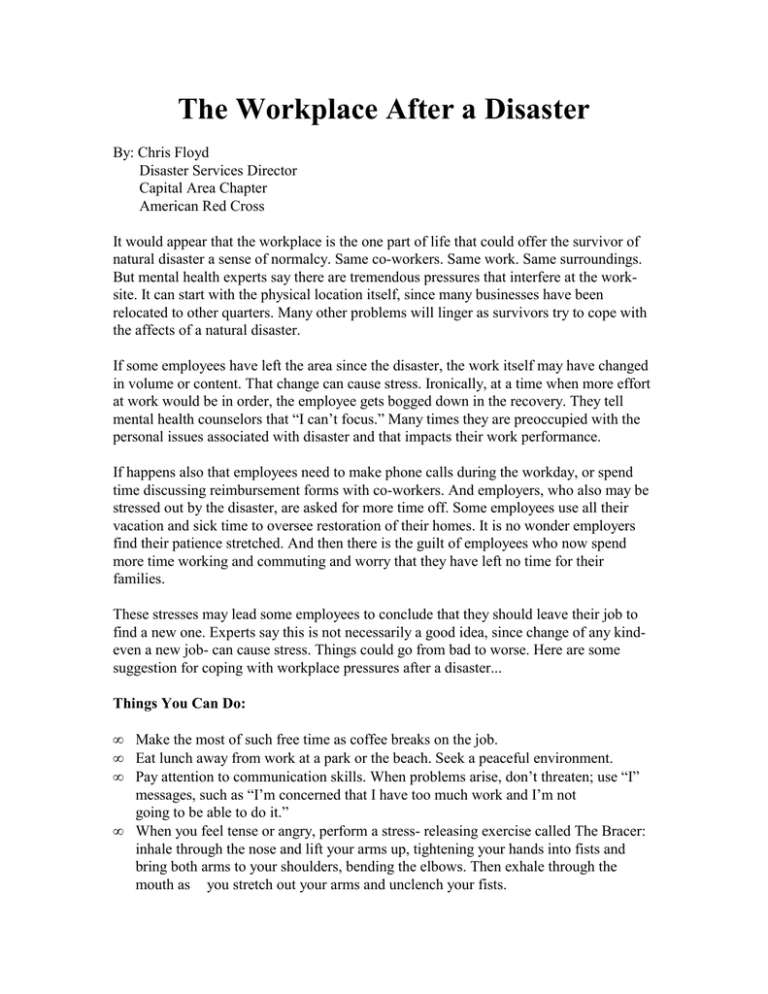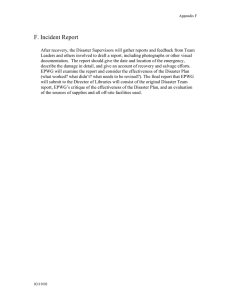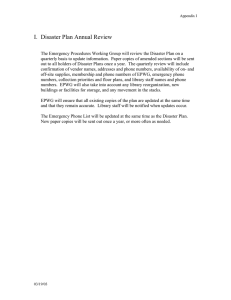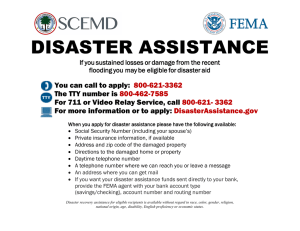The Workplace After a Disaster
advertisement

The Workplace After a Disaster By: Chris Floyd Disaster Services Director Capital Area Chapter American Red Cross It would appear that the workplace is the one part of life that could offer the survivor of natural disaster a sense of normalcy. Same co-workers. Same work. Same surroundings. But mental health experts say there are tremendous pressures that interfere at the worksite. It can start with the physical location itself, since many businesses have been relocated to other quarters. Many other problems will linger as survivors try to cope with the affects of a natural disaster. If some employees have left the area since the disaster, the work itself may have changed in volume or content. That change can cause stress. Ironically, at a time when more effort at work would be in order, the employee gets bogged down in the recovery. They tell mental health counselors that “I can’t focus.” Many times they are preoccupied with the personal issues associated with disaster and that impacts their work performance. If happens also that employees need to make phone calls during the workday, or spend time discussing reimbursement forms with co-workers. And employers, who also may be stressed out by the disaster, are asked for more time off. Some employees use all their vacation and sick time to oversee restoration of their homes. It is no wonder employers find their patience stretched. And then there is the guilt of employees who now spend more time working and commuting and worry that they have left no time for their families. These stresses may lead some employees to conclude that they should leave their job to find a new one. Experts say this is not necessarily a good idea, since change of any kindeven a new job- can cause stress. Things could go from bad to worse. Here are some suggestion for coping with workplace pressures after a disaster... Things You Can Do: • • • • Make the most of such free time as coffee breaks on the job. Eat lunch away from work at a park or the beach. Seek a peaceful environment. Pay attention to communication skills. When problems arise, don’t threaten; use “I” messages, such as “I’m concerned that I have too much work and I’m not going to be able to do it.” When you feel tense or angry, perform a stress- releasing exercise called The Bracer: inhale through the nose and lift your arms up, tightening your hands into fists and bring both arms to your shoulders, bending the elbows. Then exhale through the mouth as you stretch out your arms and unclench your fists.




